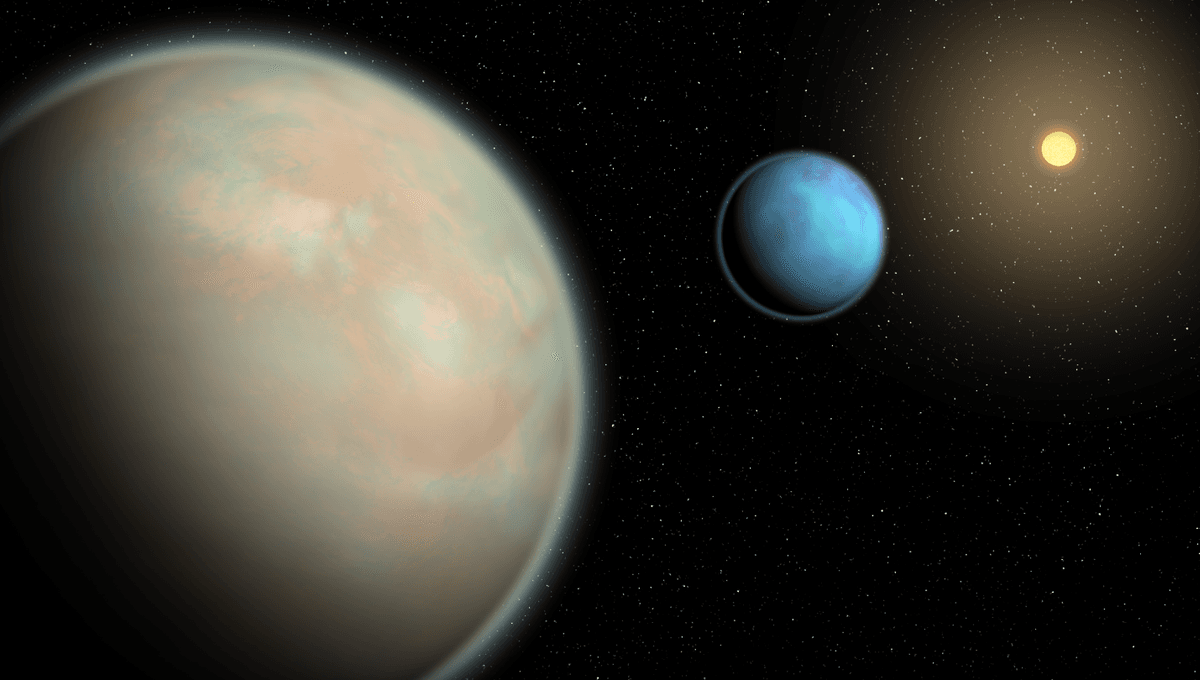
Haze is not just a problem for transportation systems. It also affects how well we can study planets beyond the Solar System that are covered in vast oceans. To better understand those worlds, researchers have decided to cook up that “alien haze” directly in the lab. So, they now know how those claggy skies affect observations from Earth, at least in some cases.
Haze is created by solid particles suspended in the air. It changes how light interacts with the atmosphere and affects what astronomers might see on a distant planet. Water worlds are seen as strong potential candidates for extraterrestrial life so having a clear picture of their atmospheric composition is key.
“Water is the first thing we look for when we’re trying to see if a planet is habitable, and there are already exciting observations of water in exoplanet atmospheres. But our experiments and modeling suggest these planets most likely also contain haze,” lead author Dr Chao He, from Johns Hopkins University, said in a statement. “This haze really complicates our observations, as it clouds our view of an exoplanet’s atmospheric chemistry and molecular features.”
The team mixed water vapor with other compounds and blasted the mix with ultraviolet light, simulating how starlight would create a photochemical reaction. The result was a haze that matched the observation of a specific and well-studied world: GJ 1214 b.
The work shows that the properties of the hazes, how they might differ, and how they filter light, influence observations of exoplanets’ atmospheres. The team calls for procedures to determine such properties and they are planning to cook up more hazes in the lab to have a more extensive catalog.
“The big picture is whether there is life outside the solar system, but trying to answer that kind of question requires really detailed modeling of all different types, specifically in planets with lots of water,” said co-author Sarah Hörst, a Johns Hopkins associate professor of Earth and planetary sciences. “This has been a huge challenge because we just don’t have the lab work to do that, so we are trying to use these new lab techniques to get more out of the data that we’re taking in with all these big fancy telescopes.”
There are over 5,000 confirmed exoplanets, with new ones being discovered every week. Not every planet has an atmosphere and the worlds that do have wildly different compositions, with components unseen even in our quite diverse Solar System. These models will help us better understand some of these exoplanets.
“People will be able to use that data when they model those atmospheres to try to understand things like what the temperature is like in the atmosphere and the surface of that planet, whether there are clouds, how high they are and what they are made of, or how fast the winds go,” Hörst said. “All those kinds of things can help us really focus our attention on specific planets and make our experiments unique instead of just running generalized tests when trying to understand the big picture.”
The study is published in the journal Nature Astronomy.
Source Link: “Alien Haze” Cooked Up In The Lab Could Help Study Distant Water Worlds